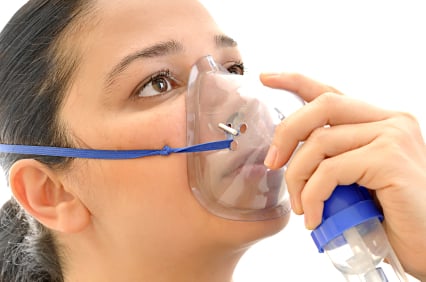
A great deal of information has been written about asthma. It is known that this common and chronic disorder affects approximately eight to 10 percent of the U.S. population. Of this number, some five to 10 percent of these patients have a severe form of the disease that fails to respond to normal therapeutic interventions.
This type of asthma is known as brittle or difficult. Those who suffer from this form of the disease can go from feeling relatively well to having severe breathing difficulties very rapidly.
If you have brittle asthma or BA, you will have relatively frequent asthma attacks. In between acute attacks, you may have ongoing symptoms such as coughing and wheezing. These may require quite large doses of medication to help you keep them under control.
Types of Brittle Asthma
There are actually two types of brittle asthma: Type 1 and Type 2.
If you suffer from Type 1 BA, you will suffer chronically every day. This is despite the fact that you take large amounts of medication and treatments that often include the use of regular daily steroids.
Type 1 BA is characterized by a wide and very often chaotic Peak Expiratory Flow, or PEF variability. This equates to a greater than 40 percent daytime variation for more than 50 percent of the time over a period of at least 150 days. This occurs even despite considerable drug therapy.
Unfortunately, while you have to deal with your daily condition, you can also suffer from life-threatening attacks that come on suddenly and without little or no warning. As a result. if you suffer from Type 1 BA, you may require frequent hospital admissions when your condition deteriorates. Because of this, some sufferers are unable to work and can become registered as disabled.
Type 2 Brittle Asthma
Type 2 brittle asthma patients generally appear to have their asthma well controlled. However, they can tend to have severe and very often life-threatening attacks. These attacks come on very suddenly and with little or no advanced warning. Very often, the airway can also have normal function.
Type 2 BA attacks can often occur in less than three hours with no obvious trigger. As a result, if you have this form of brittle asthma, you may require frequent hospital admissions.
If you suffer from Type 2 brittle asthma, you may need occasional high doses of medications. That said, you can keep your condition stable with regular medication and treatment by your doctor. Because of this, you can generally live a normal life with work and education.
Identifying Patients
In order for doctors to help prevent life-threatening BA, they need to identify those patients with severe asthma who will need aggressive management when exacerbations occur. Patients will often have their pulmonary status monitored through the use of a peak flow meter.
Who Gets Brittle Asthma?
Respiratory patients are often identified as those who have a history of other health issues. These following problems are known to increase the risk of these forms of attacks:
- Psychosocial stressors like employment/income problems
- Mental illnesses like depression/psychosis
- Fragmented health care histories
- Histories with frequent colds, flus, and.or allergies
- Hospitalization for asthma
- Intubations
- Obesity





